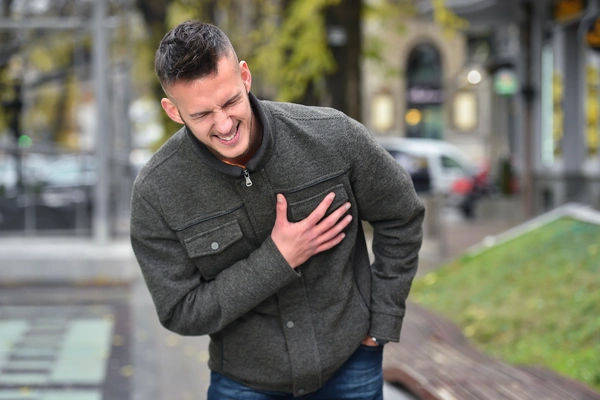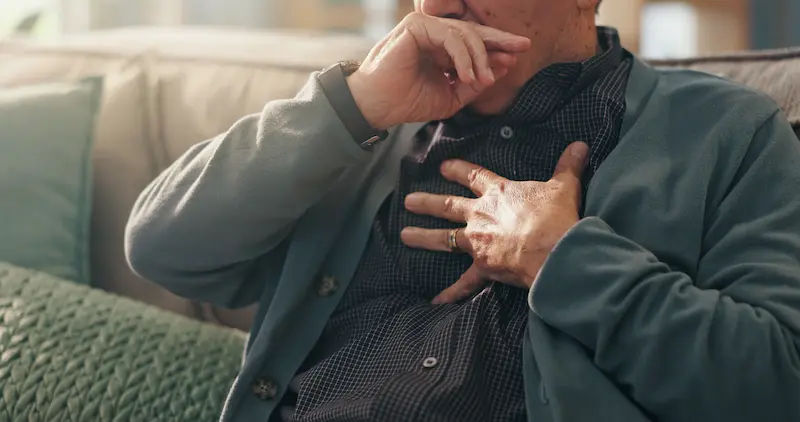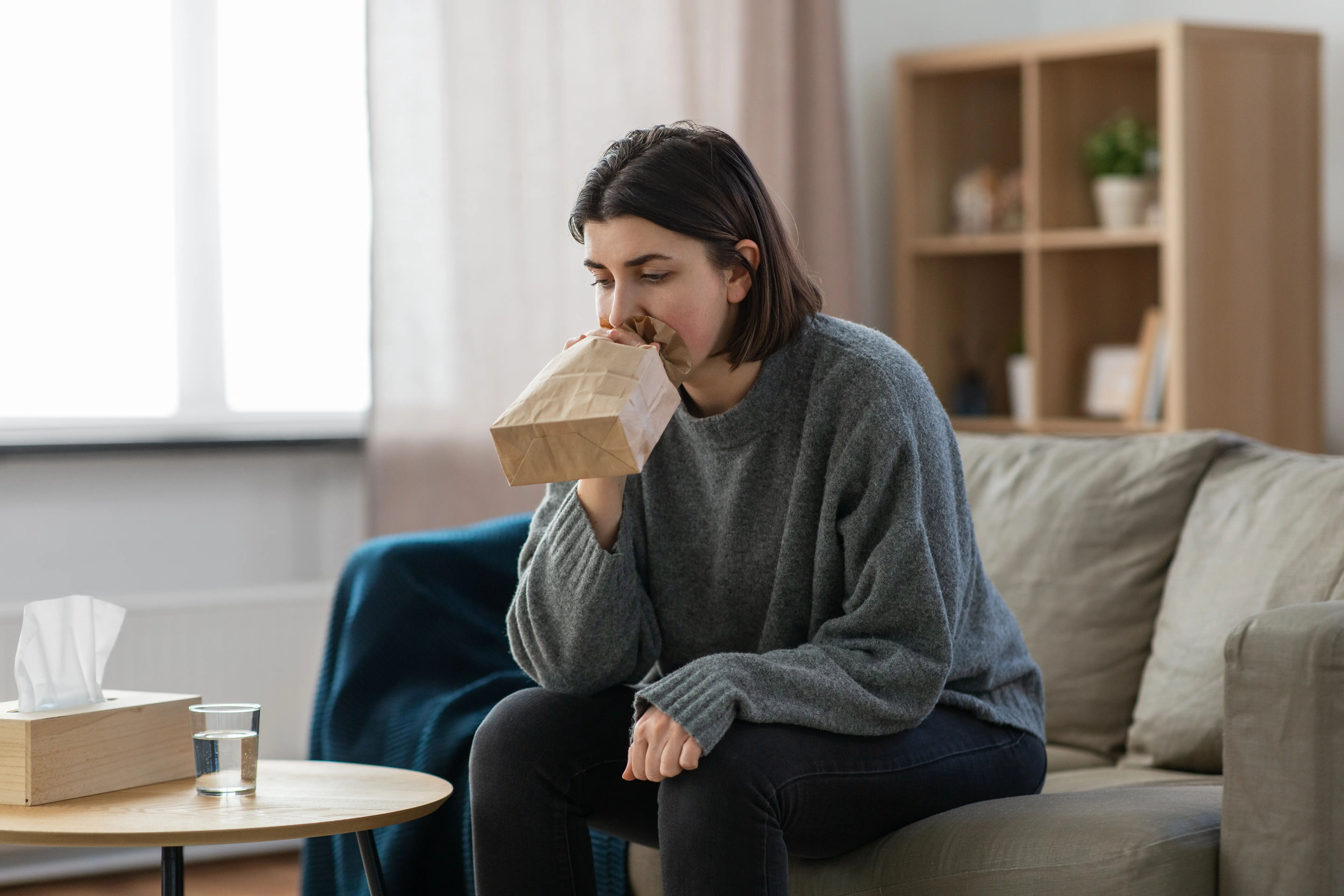What Leads to Panic Attacks? Understanding the Triggers and Causes
Discover the causes, symptoms, and effective coping strategies for panic attacks. Learn how to manage episodes, reduce frequency, and know when to seek professional help.

Written by Dr. Dhankecha Mayank Dineshbhai
Reviewed by Dr. Rohinipriyanka Pondugula MBBS
Last updated on 9th Sep, 2025

Introduction
A sudden, overwhelming wave of fear. A heart pounding so hard it feels like it might burst. A terrifying feeling that you're losing control or even dying. If this sounds familiar, you might have experienced a panic attack. These intense episodes are far more common than most people realise, affecting millions. But what exactly leads to signs of panic attacks? Is it random, or is there a discernible cause? This article demystifies the complex interplay of factors—from genetics and brain chemistry to major life stress and underlying health conditions—that can trigger these frightening events. We'll break down the science behind the symptoms, equip you with immediate and long-term coping strategies, and guide you on when it's crucial to seek professional support. Understanding the "why" is the first powerful step toward reclaiming control.
What Exactly is a Panic Attack? More Than Just Feeling Anxious
It's vital to distinguish a panic attack from general anxiety. While anxiety often builds gradually in response to a perceived threat, a panic attack is an abrupt, intense surge of fear or discomfort that peaks within minutes. It’s your body’s innate "fight-or-flight" response—a survival mechanism designed to protect you from immediate danger—firing off at the wrong time. There doesn't need to be a real threat; your body reacts as if there is one. This false alarm triggers a cascade of physiological and psychological symptoms of a panic attack that can be utterly debilitating. Understanding this distinction is key to recognising the episode for what it is: a misfire of your body's alarm system, not a sign of impending doom or a heart attack.
The Body's Alarm System: Recognising the Signs of a Panic Attack
Physical Symptoms: When Your Body Feels Out of Control
The physical signs of a panic attack are often the most alarming because they mimic serious medical emergencies. They are primarily driven by a rush of adrenaline, which prepares your body to fight or flee. This includes:
- Heart Palpitations or Pounding Heart: Your heart races to pump more blood to your muscles.
- Sweating: To cool down the body under stress.
- Trembling or Shaking: Caused by muscle tension and the surge of energy.
- Shortness of Breath or Feeling Smothered: Your breathing becomes rapid to take in more oxygen.
- Chest Pain or Discomfort: Often a result of tense chest muscles and rapid breathing.
- Nausea or Abdominal Distress: Blood is diverted away from your digestive system.
- Dizziness or Lightheadedness: Caused by changes in breathing and blood flow.
- Chills or Hot Flashes: Your body temperature regulation is disrupted.
Psychological Symptoms: The Overwhelming Fear
The physical sensations are almost always accompanied by intense, terrifying thoughts:
- Derealization: Feelings of unreality or being detached from your surroundings.
- Depersonalization: A sense of watching yourself from outside your body.
- Fear of Losing Control or "Going Crazy": A common, distressing thought during an episode.
- Fear of Dying: Often fuelled by the severe physical symptoms like chest pain.
The Root of the Rush: What Triggers a Panic Attack?
Panic attacks rarely have a single cause. They typically result from a combination of factors.
Major Life Stress and Transitions
Significant stressors act as a major catalyst. This includes both negative events (job loss, divorce, bereavement) and positive ones (getting married, having a baby, starting a new job). Chronic stress from work, financial worries, or caregiving can also deplete your emotional resources, making you more vulnerable. The body's stress response system becomes over-sensitised, eventually reacting to minor triggers with a full-blown panic attack.
Genetics and Your Family History
Research shows a clear genetic component. If you have a first-degree relative (parent or sibling) who experiences panic attacks or has panic disorder, you are significantly more likely to develop them yourself. This suggests an inherited predisposition to an overactive fear response.
Underlying Medical Conditions
Certain medical conditions can cause symptoms identical to a panic attack. It's crucial to rule these out. They include:
- Cardiac issues like arrhythmias
- Thyroid problems (hyperthyroidism)
- Low blood sugar (hypoglycaemia)
- Inner ear disorders (labyrinthitis)
- Asthma and other respiratory illnesses
If you experience sudden panic attacks without a history, consulting a doctor is essential. Apollo24|7 offers convenient online doctor consultations to help discuss your symptoms and rule out any underlying physical causes from the comfort of your home.
Substance Use and Medications
Stimulants like caffeine, nicotine, and recreational drugs (cocaine, amphetamines) can directly trigger a panic attack by stimulating the nervous system. Conversely, withdrawal from alcohol, sedatives, or anti-anxiety medications can also provoke severe anxiety and panic symptoms as the body rebounds.
The Vicious Cycle: How Fear of an Attack Can Cause One
One of the most challenging aspects of panic attacks is the development of "fear of fear" itself, known as anticipatory anxiety. After your first attack, the intense physical sensations become deeply frightening. You may become hyper-aware of any slight change in your body—a skipped heartbeat, a slight dizziness. This heightened vigilance interprets these normal sensations as the start of another attack, which triggers anxiety, which then actually triggers another attack. This creates a self-perpetuating cycle that is a primary maintainer of panic disorder.
Consult a Psychologist for Personalised Advice
Panic Attack vs. Panic Disorder: Knowing the Difference
Experiencing one or two panic attacks does not mean you have panic disorder. A panic attack is a single event. Panic Disorder is a diagnosed anxiety disorder characterised by:
- Recurrent, unexpected panic attacks.
- Persistent worry about having more attacks.
- Significant changes in behaviour related to the attacks (e.g., avoiding places where attacks have occurred before).
This distinction is important for determining the appropriate level of treatment. If your panic attacks are recurrent and you're changing your life to avoid them, it's time to seek professional help. You can book a physical visit to a psychiatrist or psychologist through Apollo24|7 to get a proper diagnosis and treatment plan.
Immediate Strategies to Stop a Panic Attack in Its Tracks
Grounding Techniques: The 5-4-3-2-1 Method
This technique forces your brain to engage with the present moment, pulling you out of the spiral of fear.
- Acknowledge 5 things you can see around you.
- Acknowledge 4 things you can touch (e.g., the fabric of your chair, the floor under your feet).
- Acknowledge 3 things you can hear.
- Acknowledge 2 things you can smell.
- Acknowledge 1 thing you can taste.
Deep Breathing: Calming the Nervous System
Counteract hyperventilation with diaphragmatic breathing. Breathe in slowly through your nose for a count of 4, hold your breath for a count of 7, and exhale slowly through your mouth for a count of 8. Repeat this cycle 4-5 times. This activates the parasympathetic nervous system, which promotes relaxation.
Long-Term Management: How to Reduce Their Frequency
Cognitive Behavioral Therapy (CBT)
CBT is the gold-standard psychological treatment for panic attacks. It works by:
- Cognitive Restructuring: Identifying and challenging the catastrophic thoughts that fuel the attack (e.g., "My racing heart means I'm having a heart attack").
- Interoceptive Exposure: Safely and gradually exposing yourself to the physical sensations of panic (e.g., spinning in a chair to mimic dizziness) to desensitise yourself and break the association of these sensations with danger.
Lifestyle Modifications: Sleep, Diet, and Exercise
- Prioritise Sleep: Sleep deprivation is a major trigger for anxiety. Aim for 7-9 hours of quality sleep per night.
- Limit Stimulants: Gradually reduce or eliminate caffeine, nicotine, and sugar.
- Regular Exercise: Aerobic exercise is a powerful anxiety reducer. It helps regulate stress hormones and improves mood through endorphin release.
When to Seek Professional Help for Recurring Panic Attacks
While the strategies above can help manage isolated attacks, you should definitely seek professional help if:
- Your panic attacks are frequent and unexpected.
- You spend a lot of time worrying about the next attack.
- You are avoiding places or situations due to fear of an attack.
- The attacks are significantly interfering with your work, relationships, or daily life.
A professional can provide a formal diagnosis and access to treatments like CBT or medication (e.g., SSRIs) that are highly effective. If your condition does not improve after trying self-help methods, consult a doctor online with Apollo24|7 for further evaluation and guidance.
Conclusion
Understanding what leads to signs of panic attacks is the cornerstone of overcoming them. These episodes are not a sign of weakness or a character flaw; they are a complex but treatable response involving your biology, psychology, and environment. While the experience is terrifying, it is manageable. By recognising the triggers, implementing immediate grounding techniques, and committing to long-term strategies like therapy and lifestyle changes, you can break the cycle of fear. Remember, you are not your panic attacks. They are something you experience, not who you are. With the right tools and support, you can reduce their power over you and move toward a life of greater calm and control. If your journey feels overwhelming, remember that reaching out to a healthcare professional is a sign of strength and the most effective step toward lasting relief.
Consult a Psychologist for Personalised Advice
Consult a Psychologist for Personalised Advice

Ms VISHAKHA RATHI
Psychologist
4 Years • MA (Psychology)
Delhi
REBUILDING MINDS (OPC) PRIVATE LIMITED, Delhi

Ms. Moumita Ganguly
Psychologist
13 Years • B.ED(Special) Visual Impairment , PG.Diploma in Rehabilitation psychology
Kolkata
M’s Clinic, Kolkata
(150+ Patients)

Mr. Aman Kochhar
Psychologist
2 Years • MA - Psychology, Post Graduate Diploma In Guidance and Counselling
New Delhi
Well-mind Counselling, New Delhi

Dr. Rituparna Sannamoth
Clinical Psychologist
5 Years • BSC Psychology, MA Psychology, M. Phil Psychology
Barrackpore
RSV Healthcare, Barrackpore

Dr. Anindya Mondal
Psychiatrist
4 Years • MBBS, MD Psychiatry
Barasat
Diab-Eat-Ease, Barasat
Consult a Psychologist for Personalised Advice

Ms VISHAKHA RATHI
Psychologist
4 Years • MA (Psychology)
Delhi
REBUILDING MINDS (OPC) PRIVATE LIMITED, Delhi

Ms. Moumita Ganguly
Psychologist
13 Years • B.ED(Special) Visual Impairment , PG.Diploma in Rehabilitation psychology
Kolkata
M’s Clinic, Kolkata
(150+ Patients)

Mr. Aman Kochhar
Psychologist
2 Years • MA - Psychology, Post Graduate Diploma In Guidance and Counselling
New Delhi
Well-mind Counselling, New Delhi

Dr. Rituparna Sannamoth
Clinical Psychologist
5 Years • BSC Psychology, MA Psychology, M. Phil Psychology
Barrackpore
RSV Healthcare, Barrackpore

Dr. Anindya Mondal
Psychiatrist
4 Years • MBBS, MD Psychiatry
Barasat
Diab-Eat-Ease, Barasat
More articles from Panic attacks and panic disorder
Frequently Asked Questions
How long do panic attacks usually last?
Most panic attacks peak within 10 minutes and rarely last longer than 20 to 30 minutes. However, the after-effects of fatigue and anxiety can linger for several hours.
What's the difference between a panic attack and an anxiety attack?
The terms are often used interchangeably, but clinically, panic attacks are abrupt, intense, and have a defined set of 13 symptoms. 'Anxiety attack' is not a formal diagnosis; it typically describes a gradual build-up of worry and stress that is generally less intense but longer-lasting than a panic attack.
Can you have a panic attack in your sleep?
Yes, these are called nocturnal panic attacks. They occur during non-REM sleep and can wake you up with the same intense symptoms as a daytime attack, often with no obvious trigger.
How can I help someone who is having a panic attack?
Stay calm yourself. Speak to them in short, simple sentences. Remind them that it's a panic attack and that it will pass. Encourage them to focus on their breathing or use a grounding technique. Do not dismiss their fear or tell them to 'calm down.'
Are panic attacks a sign of a heart attack?
The symptoms can feel very similar, which is why it's important to get any new chest pain or heart palpitations checked by a doctor to rule out cardiac issues. However, panic attacks are not dangerous to your physical heart in the same way a heart attack is.



